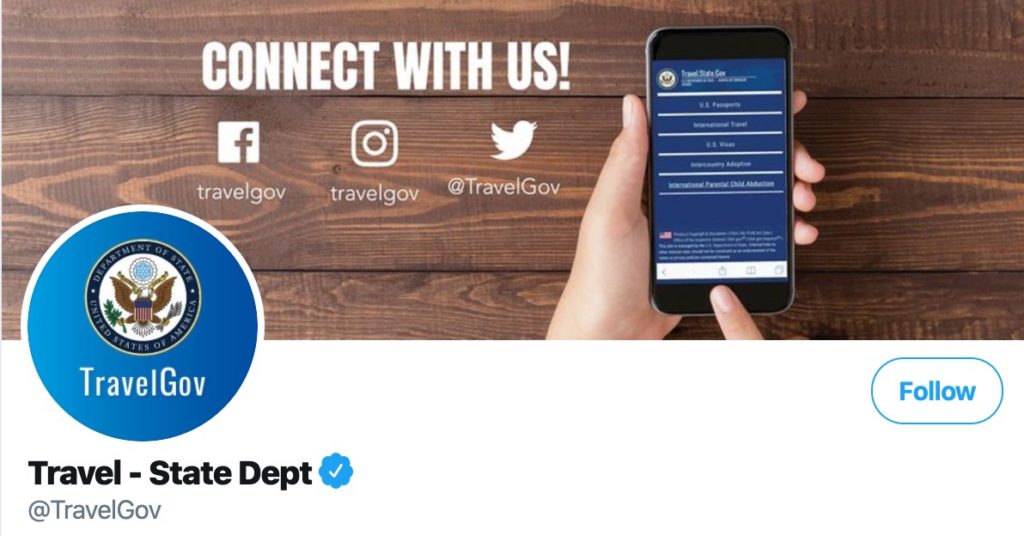In a huge move, this week the US raised the travel alert level to LEVEL 4. This is the highest level and means “DO NOT TRAVEL.” But, what about Americans abroad? Here are some things to do if you are one of those many Americans abroad right now.
Americans Abroad: What You Should Do and Know
I am one of these Americans abroad so I have been following things very closely myself. However, I am also in one of the most safe conditions I could find myself in a home with just family and somewhat secluded so I am not putting them at risk.
The world is changing literally by the hour – what borders are closing, what cities are getting cut off from air travel, what measures are being taken to fight the coronavirus, etc. Here are some things to keep track of if you are outside of the US.
Here is a very recent example of a change occurring that Americans in-country should be aware of.
US Citizens:
If your international flight is scheduled after 12am March 23 please contact your airline now. President of Colombia announced that all intl. air arrivals and other transit passengers will be suspended for 30 days at all airports.
— US Embassy Bogota (@USEmbassyBogota) March 21, 2020
Important Note: US Embassies and Consulates are no longer processing things like passport applications unless it is an immediate emergency. Keep this in mind, no matter where you are!
If You Are on Vacation Abroad (or studying)
If you are an American abroad on vacation, you should definitely plan on getting back to the US as soon as possible. The US has cases that are climbing quickly with the virus but if you stay where you are, you may not be able to return for a while.
If you plan on staying where you are (there are still some countries with relatively few cases), you should be prepared to be there for some time. That means having a place to stay and money on hand. Depending on the country, they may get nervous about being paid from credit card usage or just simply need cash right now. So, you should make sure that you have cash on hand to use in the interim if cards are no longer accepted or stop working.
Also, make sure your insurance covers you where you are. If it does not, you may want to get some worldwide insurance (I use IMGlobal) to cover you in case you need it while abroad. But, remember that many hospitals may require you to pay up front and submit the receipts to the insurance company on your own so, again, be prepared for that.
Finally, if you are in a hotel, do not trust that the hotels will remain open. In Greece, for example, almost every hotel in the country is closing. If you plan on just riding it out in a hotel, you may not have that choice at some point.
If You Are Settled Abroad
If you are in a settled situation (like we are), then chances are good you already know what you need to do and are familiar with the surroundings enough to feel comfortable. Just make sure that you check the news reports for your country/city daily as many places are going into varying degrees of lockdown.
Being outside could get you arrested without having a form (like in France) or even thrown in jail for a year (like in Lebanon). Keep up with the current news for your area to make sure you know of any impending lockdown and that you are able to lay in all the supplies you will need for such an event.
If You Are an American Abroad – Here’s What You Should Track
The US State Department has a special twitter account – @travelgov – that has a constant stream of information about the closures of countries and airports. I have seen no fewer than 2 dozen such tweets in the last two days about countries that are starting to close down or lock down airports. Whether you are on vacation or settled, you should keep track of these alerts for your country! Some of these countries are closing borders for 30 days with no flights in or out. If you want to get back to the US soon, keep track of these alerts and be ready to leave at a moment’s notice.
Travel Advisory: Level 4 – The Department of State advises U.S. citizens to avoid all international travel due to the global impact of #COVID19. In countries where commercial departure options remain available, U.S. citizens who live in the US should arrange for immediate return. pic.twitter.com/MydSzFffYd
— Travel – State Dept (@TravelGov) March 19, 2020
Another thing to do (if you have not already) is to register for STEP – Smart Traveler Enrollment Program. This lets you register your presence in a country with the US Embassy/Consulate in that country. If things do turn bad, they know how to get a hold of you. They will also let you know of any evacuation options, should it get to that.
But, make sure you track both that Twitter account and keep an eye for STEP e-mails since you may be able to cross over into another country to get back to the US which a STEP alert would not tell you about (since it is country specific). Like, this afternoon, I got an alert on the Twitter account about a few flights departing from Frankfurt for the US. Very few are doing that so it is good to know about that.
Finally, check out this page to see what the State Department can and cannot do in an emergency so you can have the proper expectations










Nicely written, Charlie. Great addition to your recent series of useful posts. Thanks!
Thanks!